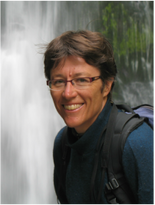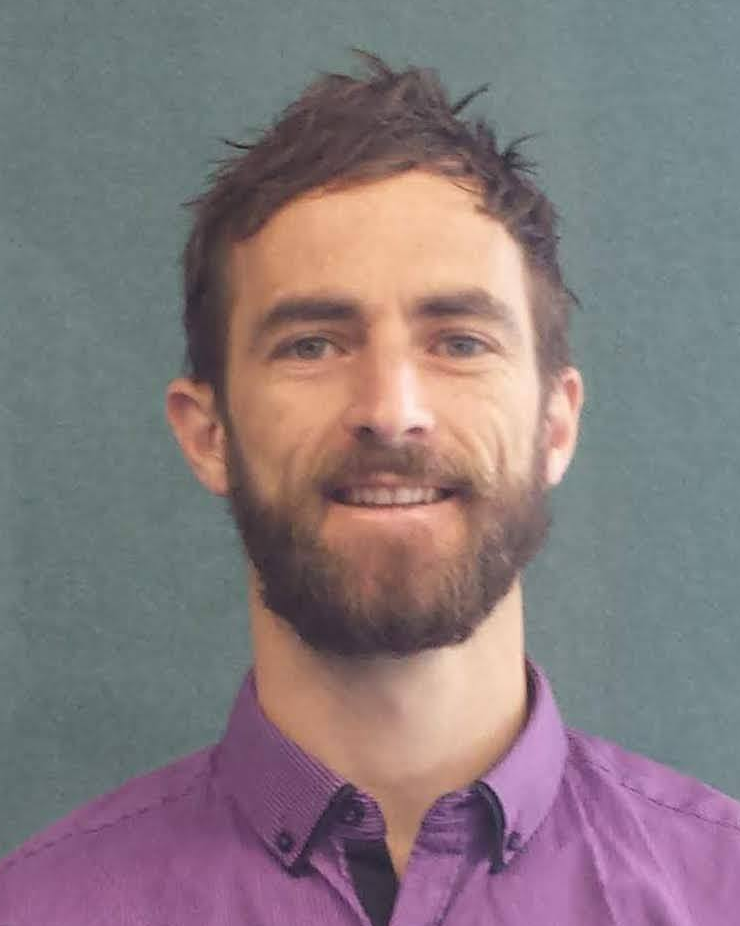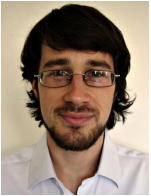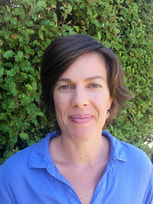We don't only teach you the skills and techniques that can help you to address your concerns, we also strive to help you to gain insight into what's behind them - what story and core beliefs are influencing your symptoms? We explore your story, and assist you in letting go of it gently, allowing a more free, dynamic sense of yourself to emerge.
We specialise in offering our clients ISTDP, mindfulness therapy and skills for dealing with stress, panic and anxiety, and therapy that recognises the importance of our environment - ecotherapy. All of these forms of therapy are informed by our background and training in psychodynamic psychotherapy.
We believe in working together to get to the root of your distress, in conjunction with behavioural skills. Our experience has shown us that this combination is what brings about sustained change and healing.
We typically video record our sessions with the clients consent. The reason we've decided to consistently work this way is that it helps us to review our work and get highly accurate supervision to help improve treatment outcomes. Some therapists are flexible on not recording sessions whereas others will only see clients if recording is consented to - please discuss this with your therapist in advance of your first session.
*Currently none of the practitioners at Lucid Psychotherapy and Counselling are registered with ACC.
We specialise in offering our clients ISTDP, mindfulness therapy and skills for dealing with stress, panic and anxiety, and therapy that recognises the importance of our environment - ecotherapy. All of these forms of therapy are informed by our background and training in psychodynamic psychotherapy.
We believe in working together to get to the root of your distress, in conjunction with behavioural skills. Our experience has shown us that this combination is what brings about sustained change and healing.
We typically video record our sessions with the clients consent. The reason we've decided to consistently work this way is that it helps us to review our work and get highly accurate supervision to help improve treatment outcomes. Some therapists are flexible on not recording sessions whereas others will only see clients if recording is consented to - please discuss this with your therapist in advance of your first session.
*Currently none of the practitioners at Lucid Psychotherapy and Counselling are registered with ACC.
Di RobertsonCounsellor and Psychotherapy Practitioner and Mindfulness Mentor
Master of Science (Hons) [email protected] phone 027 210 2406 CURRENTLY NOT ACCEPTING NEW CLIENTS.
Di has over 20 years experience of practicing mindfulness in daily life and is available for mindfulness mentoring. She greatly enjoys supporting others to reveal the authenticity and well-being that this mindfulness practice allows. and to help people find skillful and compassionate ways to attend and respond to life. The individual mentoring sessions that Di offers are best suited for people who have some mindfulness practice and who are not seeking psychotherapy or counselling... |
James WeaverCounsellor and Psychotherapy Practitioner
Based in Hokitika, West Coast Bachelor of Teaching and Learning [email protected] phone 022 386 5401 As a therapist I will work with you to improve your symptoms by understanding the patterns and the driving forces that cause these problems in your life. I bring a sense of curious and non judgemental inquiry to the process. This therapy is yours and your goals and desires for the therapy are the central. |
Michael ApáthyPsychotherapy / Counselling / Ecotherapy
Registered Psychotherapist (PBANZ), Grad Dip Psychosocial Studies, MHSc (Psychotherapy). ISTDP Advanced Training (2021-current), ISTDP Core Training (2017-2020). [email protected] phone 0210 264 7562 Michael has twelve years experience in working with people through counselling, psychotherapy and facilitating. He is trained in a number of different therapies which he adapts to suit each individual client.
|
Selina ClarePsychotherapy / Counselling
Registered Psychotherapist (PBANZ). Grad Dip Psychotherapy Studies, Master of Psychotherapy (Hons). ISTDP Advanced Training (2021-current), ISTDP Core Training (2017-2020). [email protected] phone 022 0107 264 CURRENTLY NOT ACCEPTING NEW CLIENTS.
Selina is an experienced, insightful and compassionate therapist who does her best to help people to feel better. She has experience with a diverse range of clients, from depression to problem gambling, relationship issues and anxiety, in prisons and in the community. |
How to choose a mental health practitioner?
Who is the right person for you to see? A counsellor, or maybe a psychiatrist? What's the difference anyway?
Most people in New Zealand don't understand what psychotherapists, psychologists, life coaches, counsellors, and psychiatrists are, how they work, and how they are (and aren't) different from each other. It does get a bit complicated, so hopefully this brief guide will help to steer you in the right direction.
Most people in New Zealand don't understand what psychotherapists, psychologists, life coaches, counsellors, and psychiatrists are, how they work, and how they are (and aren't) different from each other. It does get a bit complicated, so hopefully this brief guide will help to steer you in the right direction.
How to get the most out of your counselling sessions
Often mental health professionals get started with therapy or counselling whilst making some assumptions that our clients know how to use this process to their advantage. Here are our top tips for getting the most out of the time, emotional energy, and money that you invest.
|
Turn up to your session, and do your best to be on time.
This may sound too obvious to mention, but actually it's not. Coming to face our emotional conflicts and challenges is hard. Often people feel an impulse to avoid this, even when they have already committed to facing these issues through therapy. The sessions which you feel an urge to avoid because it might be difficult, or feel like you've got nothing to talk about, may well be the most important sessions in your counselling or psychotherapy. You've invested your time and energy in deciding to start therapy, let yourself get the benefits by turning up. Use a journal Whether you are someone who is into journaling or not, this is a very useful aid to your therapy. During the week you can use it to jot down things that seem significant that you want to explore with your therapist - its pretty easy to forget otherwise. Also for right after sessions where you felt that something useful or important was uncovered that you want to work on or remember. Take space after your session It also helps to not have to rush off somewhere straight after your session. Take some time to go for a walk in silence, or a least drive in silence so that the session isn't quickly forgotten. This space allows whatever you were thinking and feeling to be processed - this will help your therapy be more effective. Make use of what you've discovered in therapy in the rest of your life. As much as counselling or psychotherapy can or should be a crucial part of the changes you're making, the time you spend in sessions isn't everything. Ultimately the changes you make in your life outside the sessions, and the way in which you use what you're learning inside sessions, makes a big difference in helping you change. |
Take risks.
The odds are that you didn't start counselling or psychotherapy to keep things exactly as they are. Tackling your anxiety, depression, trauma, or whatever else you're dealing with will involve taking the risk of leaving safe and familiar habits behind. It's scary, and it can also be exciting. Be a courageous client who takes risks by being deeply honest, by making the changes in your life that you need to make, and by questioning the beliefs that keep you stuck. Discuss ending therapy. Often it is difficult to know how to end with your counsellor or psychotherapist. Unfortunately many clients avoid working through the ending process with their therapist. This is a pity, because it is often a powerful part of the work, particularly given that often difficult endings are often part of what brings many people to therapy in the first place. Your therapist is used to doing endings with clients, and knows how to do this in a way that will benefit you. Give feedback to your therapist. Though they are trained to understand emotions, to listen to you and pay attention to your body language, even a great professional will sometimes get it wrong. Sometimes the times in which they do misunderstand you are the most important in the therapy. If you don't understand something, or feel like your therapist is getting something wrong, let them know about your concerns. Nine times out of ten it will help you get more out of your sessions. |
Specialty Areas |
Online BookingBook my first session.
If there are no bookable services showing via the online booking website, this means we currently have a waiting list for new clients. Please give us a call or email if you would like to add your name to it. |
Lucid Psychotherapy and Counselling, Christchurch provides affordable and effective individual psychotherapy, counselling, Intensive Short Term Dynamic Psychotherapy (ISTDP), ecotherapy, treatment for depression, stress, panic and anxiety disorders, and mindfulness mentoring, servicing the area of Ōtautahi Christchurch, Hokitika, Māwhera Greymouth, West Coast, Aotearoa New Zealand. We also offer online therapy sessions using video i.e., Zoom (telehealth). © 2015-2024 Lucid Psychotherapy & Counselling.



